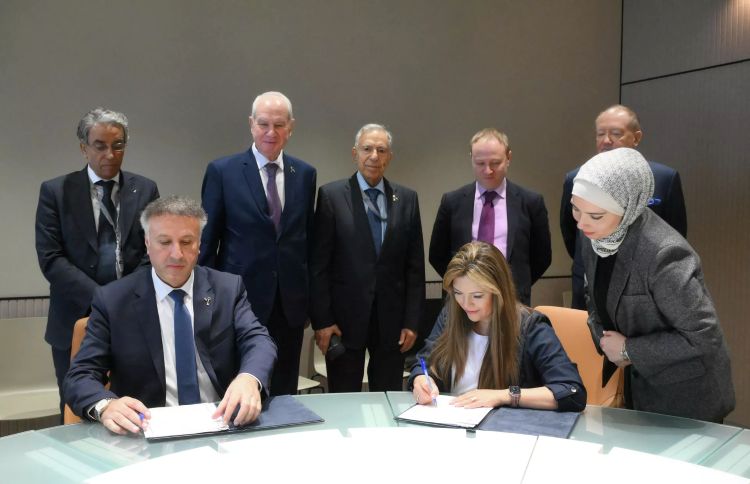RAMALLAH, May 26, 2025 (WAFA) – The Minister of National Economy, Mohammad Al-Amour, met today with representatives of the European Union, along with international partners and economic institutions, to discuss the impact of Israeli restrictions on the import of dual-use goods.
Al-Amour highlighted the serious implications of these restrictions, which affect materials intended for civilian use in key sectors such as agriculture, healthcare, and technology. These items are often classified by Israel as prohibited under security pretexts, despite their essential role in Palestinian economic development.
He noted that while such materials are freely accessible to Israeli companies, including those operating in illegal settlements, they are denied to Palestinian businesses. This disparity has contributed to the creation of a black market controlled by Israeli intermediaries, who sell the restricted goods to Palestinian firms at significantly inflated prices.
For his part, the EU representative, Ibrahim Laafia, reaffirmed the European Union’s commitment to supporting the Palestinian economy. He emphasized the right of Palestinians to import such materials under international law and stated that the EU will continue working with international mechanisms, including the World Trade Organization, to find practical solutions.
A recent study presented during the meeting examined the impact of these restrictions and suggested that the Wassenaar Arrangement could serve as a reference framework for classifying dual-use materials in line with international standards. The study also recommended establishing a more transparent and organized mechanism for import procedures.
The participants agreed on the need to move forward with the establishment of a fair and transparent licensing system, and to strengthen diplomatic and legal efforts to lift unjustified trade restrictions. These steps aim to enhance the Palestinian economy’s ability to grow and integrate into the global trade system.
T.R











